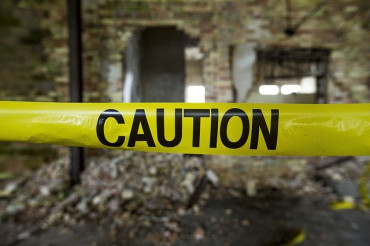What You Need To Know About Premises Liability Lawsuits

If you are injured on someone else’s property, you may be entitled to compensation for those injuries via premises liability laws. These laws are an essential part of every states’ rules about the duties of property owners to provide reasonably safe environments, free from dangerous conditions, or to notify visitors of any such conditions. These rules are in place to protect people who are injured on property belonging to someone else and typically entitle injured parties to compensation. There are some aspects of premises liability claims that you need to know.
What Must Be Proven In Premises Liability Cases?
If you bring a premises liability case against someone for injuries that you sustain on their property, there are four elements that you must prove:
- That the property owner had a duty of care to you
- That the property owner was aware or should have been aware of the dangerous condition that caused your accident
- That the property owner did not fix the hazardous condition that he or she knew about
- That this breach in the duty of care caused your injury
There may be challenges in proving one or more of these elements, and that can result in the case being thrown out. For example, you may have been injured on someone else’s property, but the direct cause could have been something besides the dangerous condition that is stated in the case. In other cases, the defendant (property owner) may attempt to show that they were in the process of fixing the condition when your injury occurred. In some situations, a premises liability case may fail because a person is trespassing when they are injured, and the defendant had no duty of care to a trespasser. Additionally, when a defendant claims that they had no knowledge, or way of knowing, that the dangerous condition existed, the lawsuit may not be viable.
Because proving a premises liability case can be difficult, it’s important to have a qualified personal injury attorney in your corner. Attorneys who handle these types of cases know how to counter the claims made by defendants and their lawyers.
What Is Strict Liability In Premises Liability Cases?
If you are injured on someone else’s property, you can seek a strict liability claim. Strict liability involves accidents that are considered inherently or abnormally dangerous. In these cases, there is no requirement to prove that the defendant violated their duty of care. For example, most dog attack cases fall under strict liability. Another example is if a property owner sets some form of trap for burglars, and you are injured by it.
While the requirement to prove a violation of the duty of care isn’t necessary in strict liability cases, you do have to prove that the condition that caused your injury was inherently or abnormally dangerous.
What Is Comparative Negligence In Premises Liability Cases?
Comparative negligence comes into play when you are found to be partially at fault for your accident. Under comparative negligence rules, you are only entitled to recover damages if your fault in the accident is proven to be less than half. If you are found to be less than 50% liable for your accident, then you can still collect damages, but the amount is reduced by the same percentage as your fault in the accident.
What Is The Statute Of Limitations In Premises Liability Cases?
In every state, there is a limitation on how long you have to make a premises liability claim. In Pennsylvania, the statute of limitations for a premises liability lawsuit is two years following the accident or injury. If you fail to act within that time, you typically will not be able to file suit.
Finding Legal Help For Your Premises Liability case
As you can see, premises liability lawsuits are not as cut and dried as they might seem. Many challenges that must be overcome. That is why it’s so vital that you enlist the help of an experienced premises liability attorney to help you with your case. The attorneys at Ross Feller Casey have a history of winning multimillion-dollar premises liability cases for clients. We deal with the most catastrophic injuries that are sustained due to the negligence of property owners or managers.
If you or a loved one has been injured due to a dangerous condition on someone else’s property, you may be entitled to compensation for your damages. Contact Ross Feller Casey to have your case reviewed for free and receive advice about how you should proceed. Premises liability cases, like all personal injury claims, are handled on a contingency basis at Ross Feller Casey. You only pay when we win or settle your case.
Disclaimer: Ross Feller Casey, LLP provides legal advice only after an attorney-client relationship is formed. Our website is an introduction to the firm and does not create a relationship between our attorneys and clients. An attorney-client relationship is formed only after a written agreement is signed by the client and the firm. Because every case is unique, the description of awards and summary of cases successfully handled are not intended to imply or guarantee that same success in other cases. Ross Feller Casey, LLP represents catastrophically injured persons and their families in injury and wrongful death cases, providing legal representation in Pennsylvania and New Jersey.





